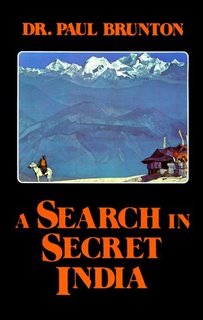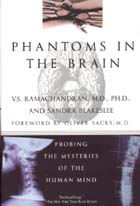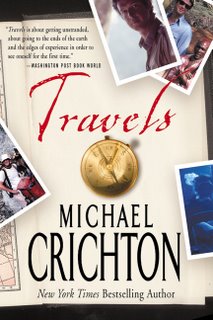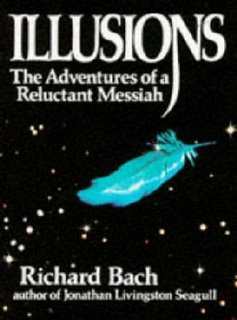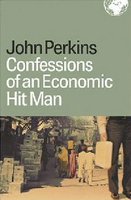Siddhartha
"He was aware of a great happiness mounting within him.
Where does it come from, he asked himself? What is the reason for this feeling of happiness? Does it arise from my good long sleep which has done me so good? Or from the word Om which I pronounced? Or because I have run away, because my flight is accomplished, because I am at last free again and stand like a child beneath the sky?"
Siddhartha by Hermann Hesse is a brilliant classic about the search for wisdom by a young Brahmin boy who lived during the time of the great Buddha. After running away from his home, he wants to become an ascetic but is unsatisfied with mere thinking, meditation and the expiation of material weath. The rest of the book is the story of his journey to search for the missing element that would make him at peace with himself.
The utter passion in which the book is soaked is a great inspiration. I turn to this book in times of despair or boredom. When confusion runs rampant, Siddhartha speaks through words with clarity, whispers wisdom that is always relevant to any predicament.
Sometimes, all that a man needs to feel happy and content is to sit with the best of his friends or with his loving parents - without speaking a word, without wishing to move, strong, quiet and absolutely certain. Most of my moments of great pleasure were times when silence seems to permeate the room (or the phone line), when you know the thoughts of the other person, and when you love them utterly without needing to speak a word, when you do not want to walk away from the moment but etch that memory in your volatile mind to preserve it, to treasure it and recollect it, long past the day when you have last spoken to each other. And reading this book offers a sense of contentment, hope and love that is just like that. An absolutely superlative book, this one.
Dear Readers,
This would be the last review I write on this blog for a while. The reasons are aplenty, but inconsequential and hence, I shall not bore you with them. I was invited to this blog by ligne after she created it in mid-2005. Ligne being my friend and neighbor from the past, at champaign. Perhaps, we shared a common love for reading. Perhaps, she just needed some company to write. After the initial tussle over the background color on the page (I hated the color; She loved it), I had to overcome my laziness and the thesis writing hassle to post my first review. And what a joy it was!
Despite the fact that our tastes were very different and sometimes, we bickered over whose taste was better (of course, mine always is :)), this blog has flourished thanks to readers like you, who have taken the time to read our opinions, and in some cases, search for the books and read them too! Your comments and opinions will be acutely missed by yours truly.
Much love,
Bala
Where does it come from, he asked himself? What is the reason for this feeling of happiness? Does it arise from my good long sleep which has done me so good? Or from the word Om which I pronounced? Or because I have run away, because my flight is accomplished, because I am at last free again and stand like a child beneath the sky?"
Siddhartha by Hermann Hesse is a brilliant classic about the search for wisdom by a young Brahmin boy who lived during the time of the great Buddha. After running away from his home, he wants to become an ascetic but is unsatisfied with mere thinking, meditation and the expiation of material weath. The rest of the book is the story of his journey to search for the missing element that would make him at peace with himself.
The utter passion in which the book is soaked is a great inspiration. I turn to this book in times of despair or boredom. When confusion runs rampant, Siddhartha speaks through words with clarity, whispers wisdom that is always relevant to any predicament.
Sometimes, all that a man needs to feel happy and content is to sit with the best of his friends or with his loving parents - without speaking a word, without wishing to move, strong, quiet and absolutely certain. Most of my moments of great pleasure were times when silence seems to permeate the room (or the phone line), when you know the thoughts of the other person, and when you love them utterly without needing to speak a word, when you do not want to walk away from the moment but etch that memory in your volatile mind to preserve it, to treasure it and recollect it, long past the day when you have last spoken to each other. And reading this book offers a sense of contentment, hope and love that is just like that. An absolutely superlative book, this one.
Dear Readers,
This would be the last review I write on this blog for a while. The reasons are aplenty, but inconsequential and hence, I shall not bore you with them. I was invited to this blog by ligne after she created it in mid-2005. Ligne being my friend and neighbor from the past, at champaign. Perhaps, we shared a common love for reading. Perhaps, she just needed some company to write. After the initial tussle over the background color on the page (I hated the color; She loved it), I had to overcome my laziness and the thesis writing hassle to post my first review. And what a joy it was!
Despite the fact that our tastes were very different and sometimes, we bickered over whose taste was better (of course, mine always is :)), this blog has flourished thanks to readers like you, who have taken the time to read our opinions, and in some cases, search for the books and read them too! Your comments and opinions will be acutely missed by yours truly.
Much love,
Bala
